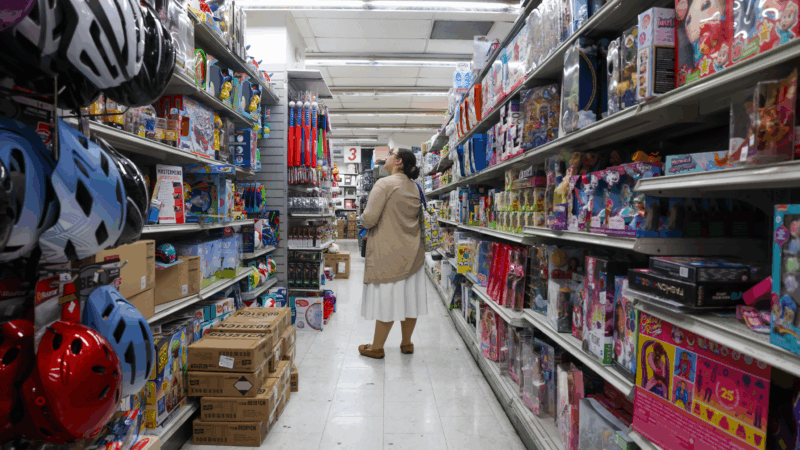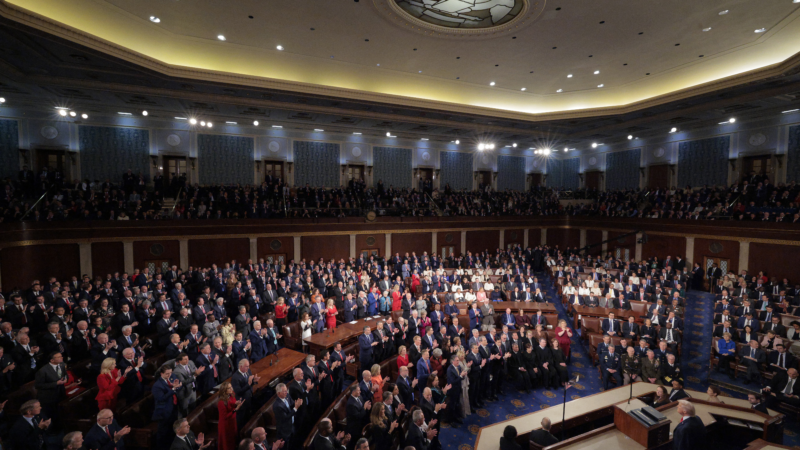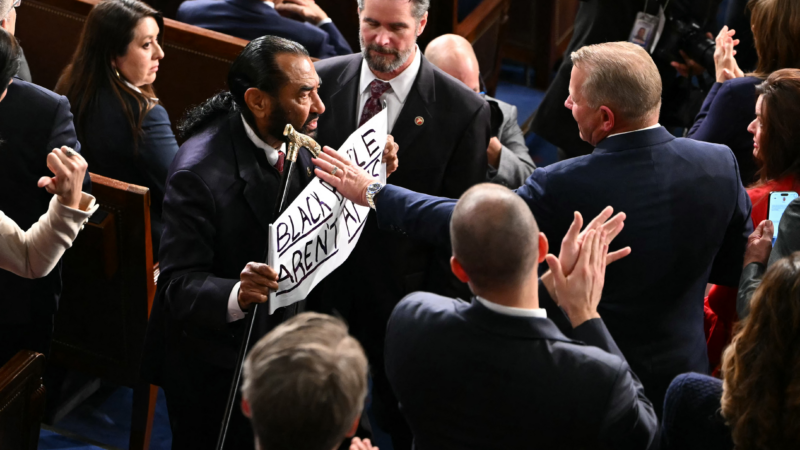The U.S. economy rebounds to 3% growth in second quarter — but tariffs skew picture
The U.S. economy grew this spring after a slowdown earlier in the year.
The nation’s gross domestic product — the broadest measure of economic activity — grew at an annual rate of 3% in April, May and June, according to a report Wednesday from the Commerce Department. That’s a turnaround from the three previous months when GDP contracted at a rate of 0.5%.
Both measures were somewhat distorted by big swings in international trade as businesses and consumers first braced for, then reacted to, President Trump’s worldwide tariffs. Imports surged early in the year, as businesses tried to stockpile foreign goods before the tariffs took effect. That had the effect of depressing GDP in January, February and March, because imports are subtracted from the government’s measure of economic activity.
Imports then dropped in the second quarter of the year as double-digit tariffs took effect, making the spring GDP figure look somewhat rosier. Exports also fell during the quarter.
Growth is still slower overall than previous two years
Consumer spending, which is the biggest driver of economic activity, rose at an annual rate of 1.4% in the spring. Business and residential investment were down during the quarter, while spending by state and local governments rose.
Loading…
Averaging the first- and second-quarter GDP measures, the U.S. economy grew at an annual rate of about 1.25% during the first half of the year. That’s a slowdown from each of the two previous years, when the economy grew nearly 3%.
“We expect the economy to lose more momentum,” said Samuel Tombs of Pantheon Macroeconomics. He’s projecting annualized GDP growth of only about 1% in the second half of the year, as consumers wrestle with increased prices for imported goods and businesses respond to uncertainty over the Trump administration’s economic policies.
Real final sales to private domestic purchasers — which strips out trade and government spending — grew at an annual rate of 1.2% in the second quarter, compared to 1.9% in the first three months of the year.
Hundreds of American nurses choose Canada over the U.S. under Trump
More than 1,000 American nurses have successfully applied for licensure in British Columbia since April, a massive increase over prior years.
Trump’s many tariff tools mean consumer prices won’t go down, analysts say
The Supreme Court struck down President Trump's signature tariffs. But the president has other tariff tools, and consumers shouldn't expect cheaper prices anytime soon, economists say.
5 takeaways from Trump’s State of the Union address
President Trump hit familiar notes on immigration and culture in his speech Tuesday night, but he largely underplayed the economic problems that voters say they are most concerned about.
China restricts exports to 40 Japanese entities with ties to military
China on Tuesday restricted exports to 40 Japanese entities it says are contributing to Japan's "remilitarization," in the latest escalation of tensions with Tokyo.
Signs, silence, and skipping: How Democrats protested Trump’s State of the Union
The pushback comes as Democrats enter a midterm year where they hope to make gains in the House and Senate.
Trump honors gold medal-winning men’s hockey team at State of the Union amid controversy
The celebration of the men's team comes after FBI Director Kash Patel's trip to the Games in Milan, and the president's comments about the U.S. women's team, have drawn scrutiny.







